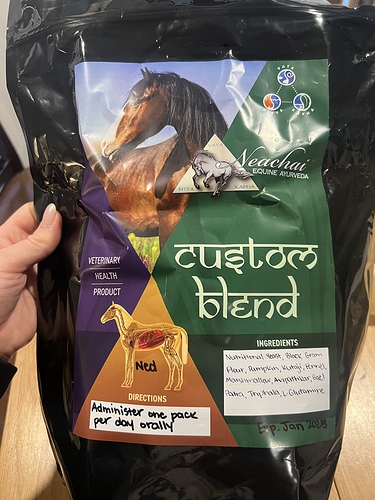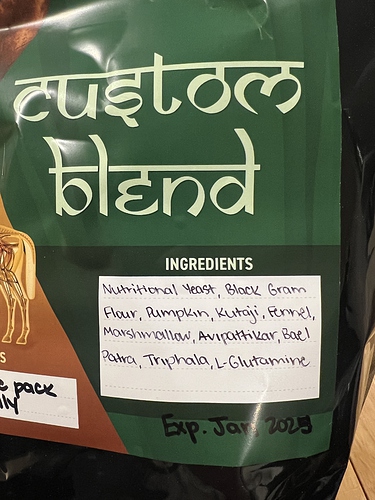UPDATE: Finally found a product to fix this! I went to a company called Neachai. Theresa made Ned a custom blend of herbs in an oral powder form and also a liquid rectal blend (syringe once a day). Within 5 days all signs of fecal water syndrome was gone! I highly suggest reaching out to her if you’re in the same boat as I was!
Original post:
Looking for any ideas and advice for my large pony Ned. He is 26 and I’ve owned him for 20 years. He has cushings and is on Prascend for it. The medication seems to manage it well and as soon as he went on it his mood improved, he lost all of the fat deposits and has since been in fantastic condition. He is sound to ride and is still feisty as ever! His weight is also perfect and he is his happy normal self.
When the weather changes drastically he can have a bout of diarrhea for a day or two, he has always been this way however last winter he developed Free Fecal Water Syndrome. The vet put him on a course of sucralfate for hindgut ulcers (3 weeks 12 pills twice a day) as well as biosponge for a week. There was no change. He was then put on mostly hay cubes instead of hay indoors when he came in from turnout which helped a bit but he didn’t care to eat them. As soon as the grass came back he was 99% clear of the fecal water all summer long.
Fall came around and it started back up again even worse than last year. As soon as the grass was done and the round bale went out it happened again. It seems to be worse when the temperature goes up and down. As of now I have to wash his hind end daily and I am struggling to keep him dry. Despite my efforts with topicals he’s starting to get a bit of ouchy mud fever on his felt locks from being wet all the time. Right now I currently wash his hind end about 6 days a week. Most of the time I can’t even get him dry enough to put topicals on before he has the squirts all down his legs again. He was clipped in the fall and i try to keep his legs clipped short, but it’s almost impossible when he is never dry. I have been slathering Vaseline all over him in an effort to make a barrier from the wetness which seems to make it run off a bit. I know that unfortunately they can have delayed recovery from any conditions with cushings.
Here is what supplements I have tried:
Psyllium husk - 1/2 cup per day (vet suggested this)
Mad Barn Visceral
Mad Barn Optimum Digestive Health
Added Beat Pulp to his diet
Current Feed:
AM: - 1 scoop beat pulp & 1 scoop roughage
PM: - 1 scoop beat pulp & 1 scoop purina senior
Our barn adds salt to their meals once daily. They rotate different types.
Round bale outside and hay indoors at night.
I have spoken to 3 vets about this and they all say take him off hay completely and do cubes. I live in Toronto so I can’t have soaked hay cubes outside during the winter. Changing hay isn’t an option either, he would have to go on solo turnout which we don’t have access to in the winter. He loves his friends who have been with him for years so I don’t want to take that joy from him either. However he stands at the round bale eating all day.
Has anyone done a fecal transplant? Did it work and what was the approx cost?
Any advice and suggestions would be so very appreciated- supplements, feeds, also any ideas on how to keep him clean and dry! I’m so frustrated with the lack of a solution for him, I have spent a fortune on vet bills only to be told there is no answer. Thankfully he is in good spirits and it doesn’t seem to bother him other than the mud fever.



 -y syndrome! My filly has the most beautiful flaxen tail (on an otherwise entirely bay body) and I had to chop about 9 inches off it this winter because it was revolting to manage. She got scald on her hocks and I rarely picked her hind feet unless it was warm enough to wash them off.
-y syndrome! My filly has the most beautiful flaxen tail (on an otherwise entirely bay body) and I had to chop about 9 inches off it this winter because it was revolting to manage. She got scald on her hocks and I rarely picked her hind feet unless it was warm enough to wash them off.